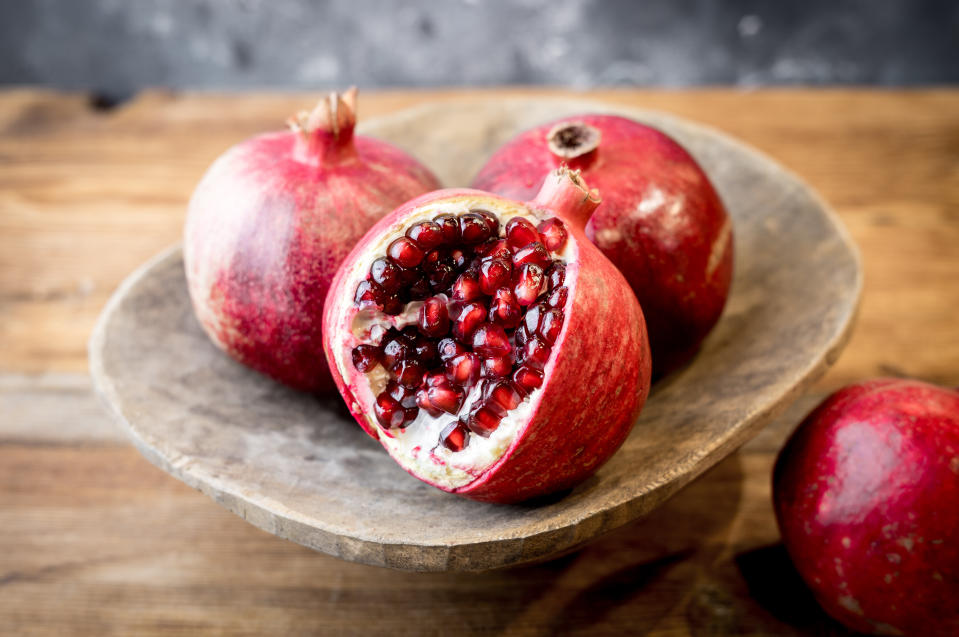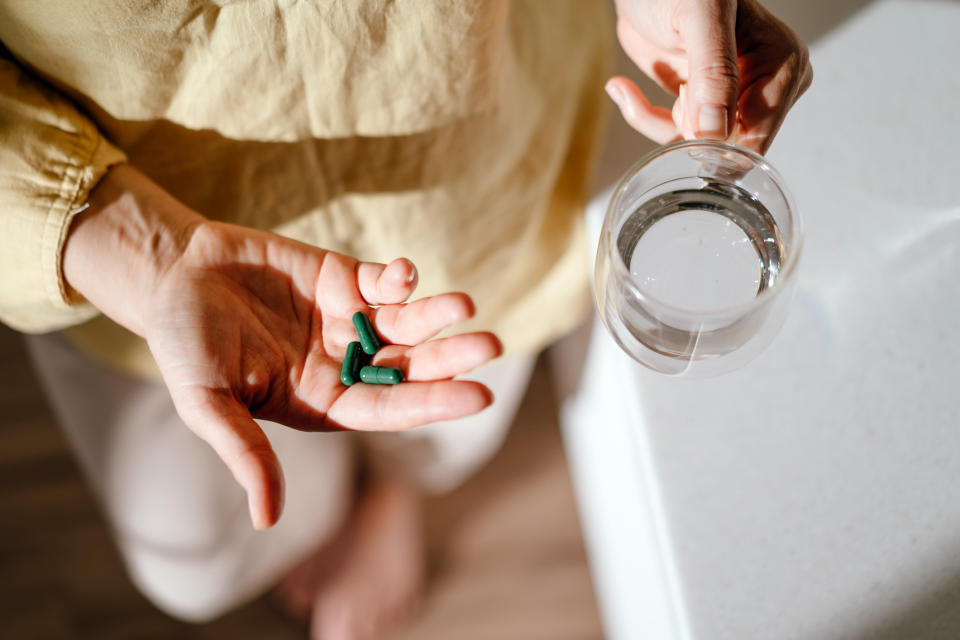This Dietitian Shares Her Number One Diet Recommendation for Seniors, and the Health Benefits Are Endless

Every decade of our lives is different. Many of us are used to having boundless energy in our 20s, even after four hours of sleep and a few margaritas, and needing a lot more sleep (and less booze) in our 30s. From the moment we’re born, our bodies and nutritional needs change, so it makes sense that we need more and more of certain foods as we age.
Certain foods can be beneficial for our energy levels as we age, says Kimberly Gomer, a registered dietitian and former director of nutrition at the Pritikin Longevity Center. But diet can also play a key role in disease prevention. “The primary driver of all disease, whether it’s heart disease, cancer, diabetes, obesity, or dementia, can be rooted in inflammation,” she says. “The way that inflammation reacts in our bodies seems to intensify as we age, creating illness and distress. Eating an anti-inflammatory diet, as well as cutting out inflammatory foods, is key to maintaining exceptional physical and mental health as we age.”
The Food You Should Eat More Of As You Age


If you’re looking for a specific food that can shake things up health-wise, the experts we spoke with suggest opting for a high-quality fatty protein, namely salmon. “Fatty fish, like salmon, are rich in EPA (eicosapentaenoic acid) and DHA (docosahexaenoic acid),” which are long-chain polyunsaturated omega-3 fatty acids, says Kevin Cooke, MD, a board-certified general practitioner specializing in longevity and brain performance medicine. “Older adults should try to include these fatty acids in their diet at least twice a week to increase their intake of omega-3s, which support brain health and reduce inflammation.”
Gomer added that we need protein to maintain and build muscle, and healthy fats for hormones and fat-soluble vitamins. “As we age, we naturally lose muscle mass. If we don’t use it, we lose it,” she said. “And as we age, many things can happen in our lives that make us less active and less motivated to build and maintain muscle. All of our cells, including those in our brains, need healthy fats to function. If we don’t provide them with them, we can have physical and cognitive problems.”
Edwina Clark, a registered dietitian, adds that if salmon isn’t your thing, other high-quality protein sources can include skinless poultry, eggs, and tofu. This is especially important for those 65 and older. “Studies indicate that the optimal protein intake for older adults is 1 to 1.2 grams (per kilogram of body weight), which is higher than the general recommendation for adults of 0.8 grams per day,” she says. With that in mind, any of the foods listed can help you meet your needs.
Other foods to add to your plate


While it’s definitely a good idea to eat protein and healthy fats as you age, Cooke noted that leafy greens, like kale or spinach, are also smart additions, especially if you’re not currently eating a lot of them. “Leafy greens are high in lutein, zeaxanthin, and other antioxidants,” he said. “They’re also a great source of B vitamins, like folate, niacin, riboflavin, and vitamin B6, which are important for healthy brain function.”
Clark also recommends pomegranates. “Pomegranates are a rich source of antioxidants to fight oxidative damage and contain a group of compounds called ellagitannins,” she said. “Ellagitannins are converted into something called urolithin A by gut bacteria in some people, and urolithin A has been shown to offset some of the effects of aging, including muscle loss. Pomegranates are also a rich source of fiber…and help regulate blood sugar, promote satiety, and protect against colon cancer.”
How do nutritional needs differ between men and women?


Men and women have different nutritional needs at each stage of their lives, including as they age. “Men generally require higher protein intake to maintain muscle mass, which can decrease with age,” Cooke said. “They also tend to have higher caloric needs due to greater muscle mass and a higher metabolic rate, although these needs decrease with age. Zinc is especially important for men because it supports prostate health and immune function.”
In women, calcium and vitamin D are essential for maintaining bone health, especially after menopause, when the risk of osteoporosis increases. “Iron needs decrease after menopause, but it remains important for energy levels,” Cooke said. “Folic acid is essential for cognitive and cardiovascular health. Additionally, phytoestrogens, found in soy products, may help alleviate menopausal symptoms.”
What about supplements?


It seems like supplements are everywhere these days, and you may be wondering if they can fill in your nutritional gaps. While it’s still unclear how effective supplements are, Gomer said, in many cases they can’t hurt, as long as you take a nutrition-focused approach.
“If someone has a known deficiency, it’s always best to start with diet, as nutrients from food tend to be better accepted and absorbed by the body,” she said. “But sometimes a supplement is necessary. It should be taken during an initial lab test to establish a baseline, and then the appropriate supplement and dosage should be determined. For example, many of my clients have low vitamin D levels, which is difficult to get through diet alone, so a supplement can be helpful.”
While nutrition may seem more complicated as we age, it doesn’t have to be. Rest assured, if you’re eating salmon a few times a week and also eating a few handfuls of leafy greens, you’re in pretty good shape.This article was originally published on The HuffPost.
News Source : www.yahoo.com
Gn Health




